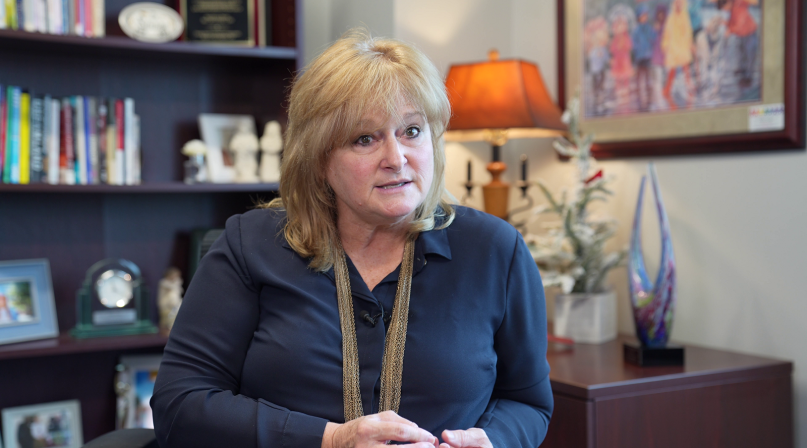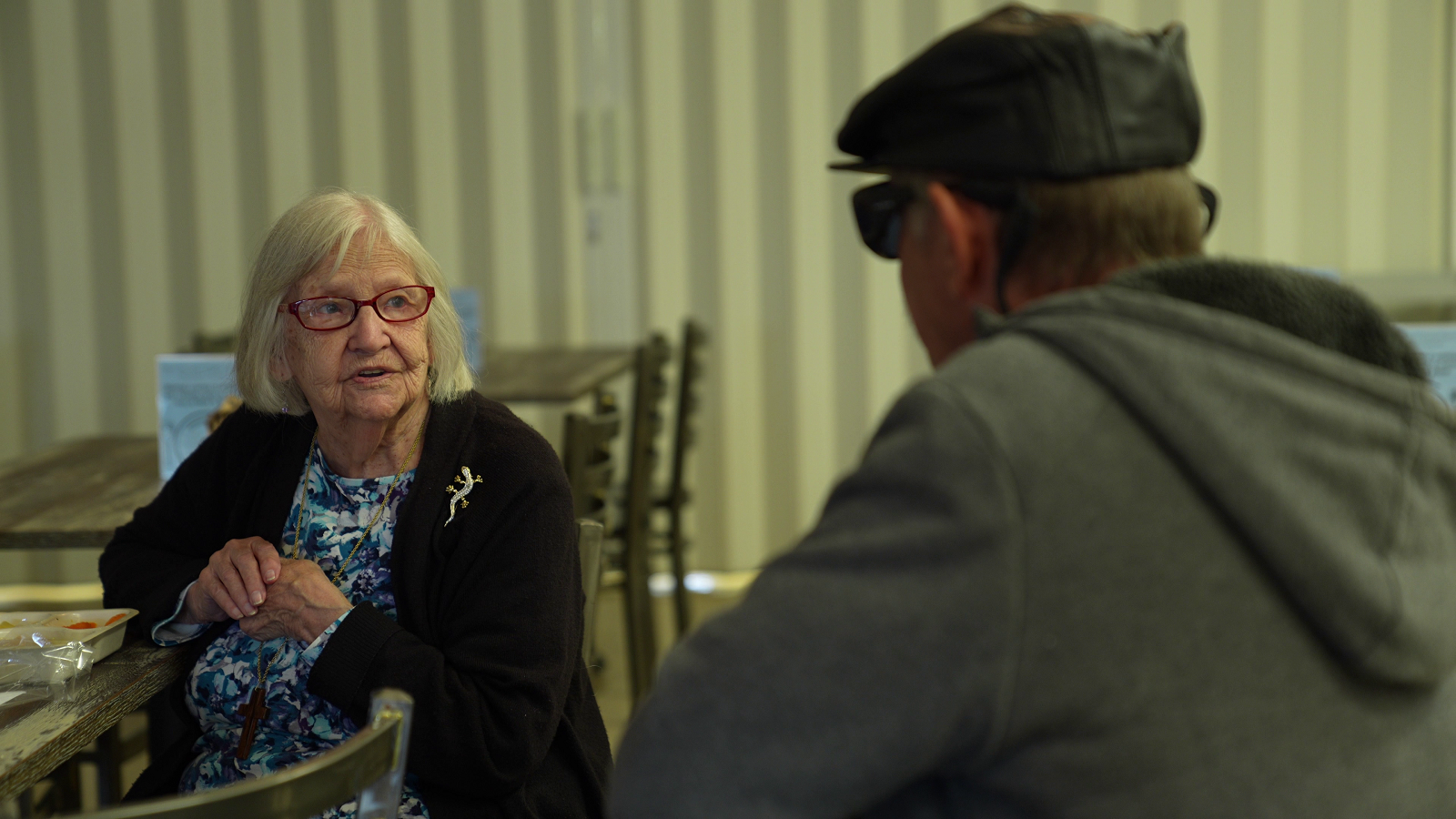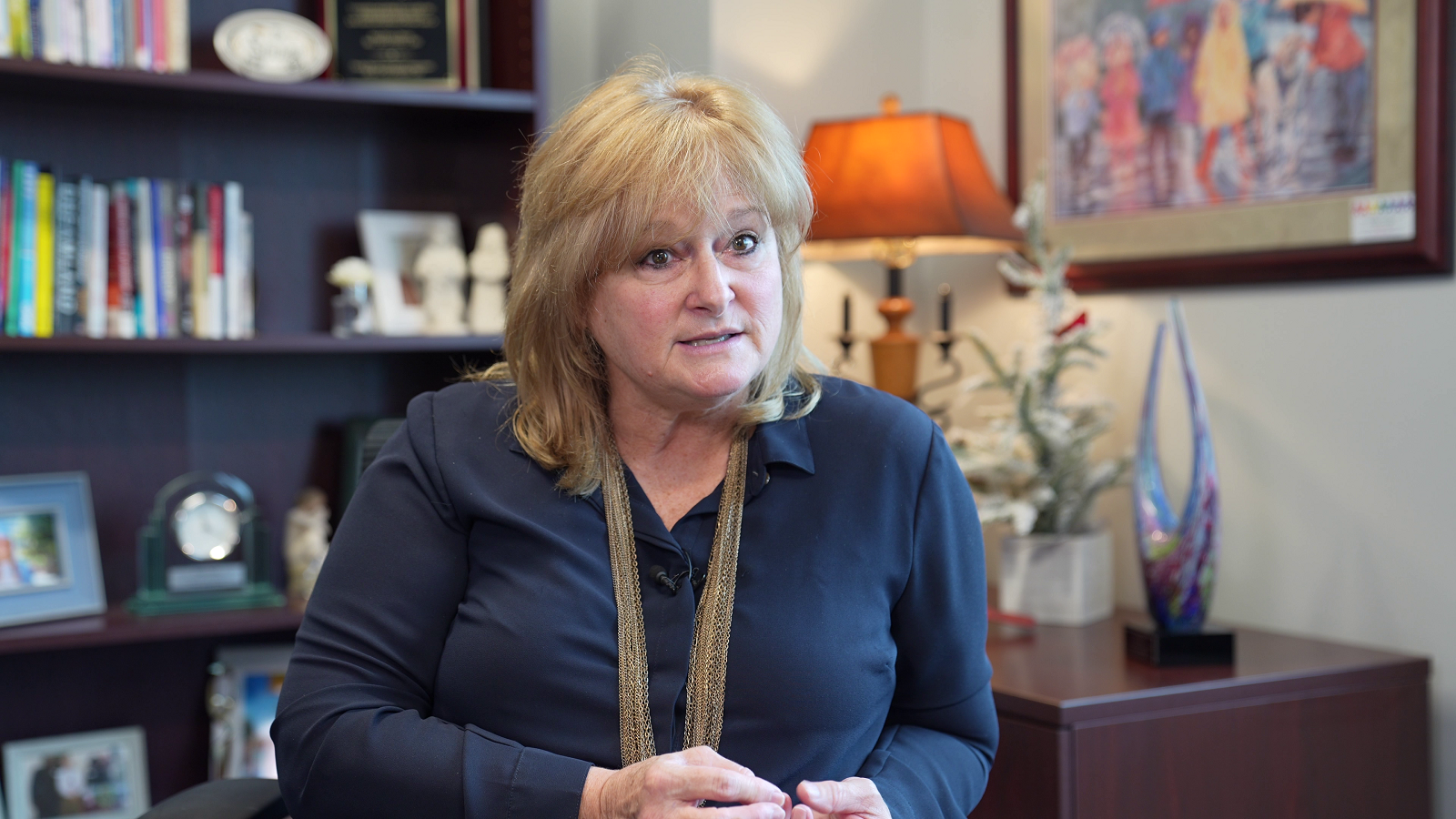N.C. county gets quick start on ARPA investment

Key Takeaways
Even during the peaks of the COVID-19 pandemic, counties have kept vital services running, a feat that made officials feel like they’d been rubbing their stomachs while patting their heads. New Hanover County, N.C. gave itself a new set of hands.
Introducing a pandemic operations team will give the county’s Health and Human Services Consolidated Agency the flexibility to respond to residents’ needs without taking staff away from their responsibilities. It’s one part of the county’s robust and multi-faceted response to the pandemic using funding from the American Rescue Plan, the first approved by a county Board in the United States, roughly three weeks after the legislation passed.
“We have school nurses — not every county has that — those nurses were available to us for vaccination clinics when the kids were in school remotely,” said Donna Fayko, the agency’s director. “When schools returned to in-person learning, we lost those nurses and we had to pull resources from clinic operations.”
When hiring is complete, the county will have several personnel dedicated entirely to pandemic operations, including testing, vaccination, booster administration, contact tracing, outreach to historically marginalized populations and communications.
“We didn’t have an epidemiologist on staff anywhere in the county,” Fayko said. “Soon we’ll have someone who can follow the science, make sure they’re aware of all the changes coming down from the [experts] and be proactive. They can look at our trends and forecast what we can expect from the pandemic.”
NACo’s Untold Stories campaign
County News recently visited New Hanover County, N.C. as part of NACo’s “Untold Stories” campaign. We met with county officials who were crucial in crafting the county’s spending plan, talked to leaders of nonprofit organizations that received aid through the plan and heard from members of the community who benefited directly from the American Rescue Plan.
NACo will also release a video highlighting New Hanover County’s efforts, available on Twitter @NACoTweets and on naco.org.
Since the beginning of the coronavirus pandemic, counties have served on the front lines, working to protect the health and wellbeing of residents and driving economic recovery in our communities. Together, counties have highlighted their critical role and the key services counties provide, demonstrating to the public and federal partners that counties matter.
Counties have an opportunity to tell the full story of their efforts and how they have made differences in the lives of their residents through the American Rescue Plan Act. NACo’s Untold Stories campaign demonstrates how counties are helping residents stay in their homes and keep food on the table, how counties support small businesses, how they are steering their communities into the future and helping residents thrive.
At www.naco.org/untoldstories, you can submit your story and access a letter to the editor template, a media relations guide, social media templates and resources to engage your residents to help them share their own untold story.
Though the pandemic operations team will initially be funded from the $45.4 million allocated to the county by the American Rescue Plan, Fayko hopes that the team will demonstrate its value and become a permanent part of the county’s budget. The 2021 American Rescue Plan provided $65.1 billion in direct, flexible aid to every county in America and the U.S. Treasury Department released its Final Rule on ARPA implementation Jan. 6.
County Manager Chris Coudriet sees a permanent pandemic operations team as a possibility.
“We’ve been in a constant state of response and recovery now for several years,” he said, noting Hurricane Florence’s damage to the county in 2018. “We were wearing our people out, across the enterprise.”
That timeline figures into Coudriet’s approach to expect COVID-19, its variants and its copycats, to be an ongoing concern for years to come.
“COVID is not going to go away, as much as we’d planned and hoped,” he said. “There’s going to be another form we don’t yet know. I worked in emergency management and I appreciate redundancy, teams dedicated to certain functions. We’ll be dealing with COVID six months from now, a year from now, but in a very different context. We’re going to continue to operate and deal with the consequences and the consequences to come. “
In a year when hiring has been a challenge for most county departments, the county has received multiple applications for each position on the team.
“People see this as an opportunity to serve,” Fayko said. “This team can stop, drop and roll for any health-related emergency.”
The pandemic operations team has already shown the public what it could do, conducting a drive-through testing site that saw 600 people in six hours, all done by its four nurses using the annex the department has rented.
Fast cash
New Hanover County’s guiding principal has been to get its American Rescue Plan funding out into the community as fast as possible.
“In the ARP, we saw help was on the way and we immediately began to formulate a plan of how we could help our citizens with these funds,” said Julia Olson-Boseman, chair of the Board of Commissioners. “We didn’t want to put the money away, now was the time to see it out in the community.”
The county watched the bill’s progress in Congress and adjusted a loose framework for spending while the legislation developed.
“We followed it closely from day one,” Coudriet said. “Our intergovernmental affairs efforts were very proactive.”
Talking with nonprofits, the chamber of commerce and businesses helped the county determine spending priorities.
“We’re grateful for the help we’ve gotten, and we hope to see our community recover a lot faster because of help that we’ve received in this bill,” Olson-Boseman said. “I’m very proud of our staff for being one of the first in the country to get a plan in place.”
Internet expansion
The county is looking to expand high-speed internet access to more than 500 homes. The program identifies families with school-aged children who are already receiving economic assistance services to connect and pay for service for two or three years.
“It connects them to school and gives them access to quality education, said Tomashia Robinson, a county IT project coordinator. “If they’re quarantined at home, they’re still able to participate in class.”
What is different about New Hanover County’s approach is that the internet service providers do business directly with the county, circumventing legal challenges to the families’ access.
“We’re the customer, we pay the bill,” Robinson said. “We’ve taken on that burden and that responsibility. They don’t have to do anything except be home when the installer comes to set up.”

Kevin Welch, director of operations for Port City Java.
Small business relief
Ordinarily, the dining rooms at Port City Java locations invite customers in and encourage them to make it a home away from home. In March 2020, the coffee houses had an identity crisis on their hands.
Drive-up and walk-up service was all they could offer, all while trying to maintain adequate physical distancing.
“Normal plans for business and long-term planning all went out the window,” said Kevin Welch, the business’ director of operations.
“Our executive team met remotely and made daily, sometimes-hourly decisions based on finances that were extremely limited,” he said. “But even though business volume was significantly depressed, our focus was on our employees.”
The chain of 13 locations in New Hanover County employs 150 people, and many stayed away from work as they figured out the coronavirus’ threat. The coffee shops held their jobs open until they were ready to return.
“Our customer base was largely essential workers, and we were essential workers,” Welch said. “It was an emotional challenge because we had such a close connection with our community, but in the meantime, that grant funding from the county gave us more strength and more resources to combat those challenges and rise above the obstacles.
“It’s difficult to tell what things would be like without that funding from the county,” he said, “but we felt a definite sense of relief when we were approved.”
Children’s mental health
Through a joint partnership with the school system, the county doubled the number of the licensed clinical therapists to 32, allowing each school to have one therapist to target children with severe or moderate issues interfering with learning processes. Three new supervisors will join the existing one.
“We’re able to meet the enhanced needs that we’re seeing from children who have been isolated through COVID when they were doing remote learning – we’re seeing a lot of anxiety and depression from school-aged children,” Fayko said. “If child shows behavioral needs, they can refer to the school-based mental health program, with no out-of-pocket expense.”
The only string attached is the family’s involvement.
“If we want to see a change in the child’s behavior, the family has to be engaged so that there’s some continuity from different interventions — we’re also teaching the parents.”

Visitors chat at the Katie B Hines Senior Center in Carolina Beach.
Senior resource center
For 395 days, the New Hanover County Senior Resource Center closed for in-person activities, putting a community on hold while health officials got a handle on what was a deadly virus for older adults in a county with a quarter of its residents 55 or older.
That didn’t stop the center’s services, with nutrition services pivoted to drive-up and drop off and the addition of virtual social events. The county debuted a long-term master aging plan in 2020 that accounted for results of a community needs assessment.
Director Amber Smith noted a 276 percent increase in the need for meal services throughout 2021, and the American Rescue Plan funding made it possible to meet that demand, with supplies and the opportunity to open additional food distribution centers.
“If we didn’t have that [funding] from the ARP, we wouldn’t have our mental health program, we wouldn’t have been able to provide the amount of nutrition services that we have,” she said.
Social Work Supervisor Andrew Zeldin pointed out that mental health counseling was a genuine need that isn’t being addressed elsewhere locally.
“Licensed clinical therapists, especially for older adults, is really nonexistent,” he said. “We’d been doing makeshift counseling. As good as I feel like I am listening and talking to people, we want a licensed clinical therapist who has the tools to help these older adults.”
Housing assistance
As New Hanover County residents encountered financial challenges during the pandemic, Cape Fear Habitat for Humanity worked to increase the amount of available affordable housing.
But the organization relies on volunteer workers, many of whom were examining their risk tolerance.
“We’ve tried to evolve our volunteer experience with folks who might not be comfortable going on a job site,” said Executive Director Lauren McKenzie. “We build walls here and transport them out to the work site.
“We didn’t want the pandemic to detract from what we’re doing here, in fact we wanted to expand our services.”
The American Rescue Plan funding has allowed the organization to purchase more land for housing, though it also helped cover the 20 percent increase in infrastructure and materials costs.
“We were able to build 25 homes, where historically we’d have been able to build eight-to-12,” McKenzie said.
Job training
The American Rescue Plan allowed Step Up Wilmington to offer stipends to job-training participants.
“I had a part-time job, but the stipend was instrumental in helping me survive in the four-to-five weeks to get ready for the new job,” said Jimmy Smith, who recently started a job as a behavioral health specialist working with people with substance abuse issues.
The program focuses on affirmative messaging in programming to help people prepare for new jobs, gain hard skills or master the soft skills that are fundamental to selling themselves to an employer.
“They need that support, they need those job training skills, but they need to put some money in their pockets,” said Alicia Hardy, talent manager for Step Up Wilmington. “They still have bills. They can focus on their training.”
She notes that the restaurant and tourism industries were particularly affected during the pandemic.
And for many, like Smith, the program imbues its participants with the confidence to work past what would be perceived as weaknesses.
“Looking for work can be lonely, it can be isolating,” she said. “Here, you receive a community of support and realize that you are valuable.”
Smith was apprehensive about finding a new job.
“I had been out of work for a very long time, so I was concerned about how to present that,” he said. “They helped me face that challenge.
“I hope I’d be doing this work if it wasn’t for Step Up Wilmington, but I think it would have taken a lot longer and been a lot harder to get here.”

Frankie Roberts, executive director of Leading Into New Communities.
Post-incarceration
“It doesn’t cost you any [money] when you come here, but it does cost you blood, sweat and tears,” Executive Director Frankie Roberts said about Leading Into New Communities.
“The centerpiece of the program is that people will be able to build a resume while they’re here.”
The 45-person residential facility offers job training, counseling, cognitive behavioral therapy and a safe place to stay, thanks in large part to the county’s grant from the American Rescue Plan.
“It helped us stay in business,” Roberts said. “It provided us an opportunity, when the road got rough and we had to quarantine people, we were able to put them up in hotels. This allowed us to keep our residents safe. It helped up deal with unforeseen consequences of the pandemic.”
Attachments
Related News

NACo sends letter to congressional leadership urging SALT deduction reform
The letter urges Congress to raise the cap on the SALT Deduction, to provide relief to American families facing double taxation and reverse an unfair double standard

NACo endorsed advanced refunding bill introduced in the U.S. House
NACo endorsed this bill and supports counties’ ability to issue tax-exempt advance refunding bonds, which can save taxpayers millions of dollars.

U.S. Congress begins work on budget reconciliation process: What this means for counties
The House and Senate Budget Committees have marked up Fiscal Year (FY) 2025 budget resolutions to initiate the budget reconciliation process to enact policy priorities without garnering bipartisan support, although the two chambers differ in their approach to drafting the legislation.

